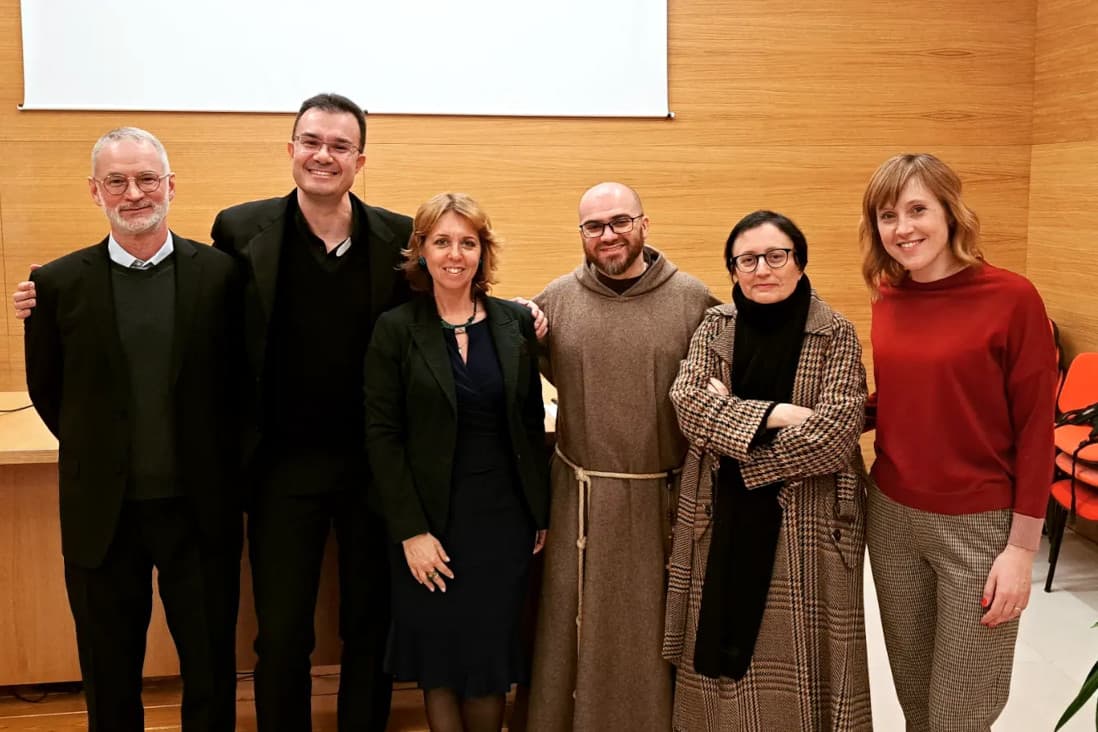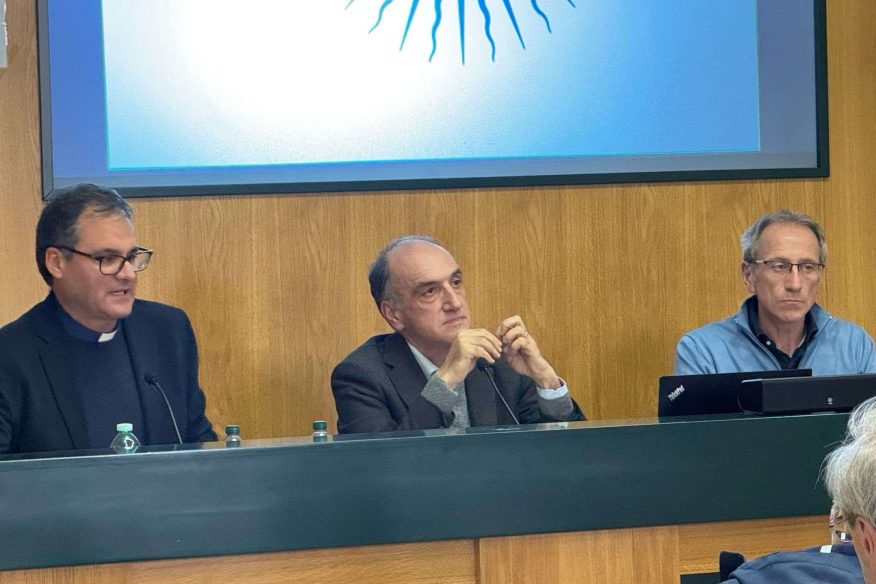At the school of reparation

A prolonged reflection on the theme of reparation, proposed in these early months of the year by the Pontifical Theological Faculty of Southern Italy, Section “San Luigi” . “There is reparation every time we take care of our fundamental bonds, especially in the aftermath of conflict events,” emphasises Fr Emanuele Iula SJ, the proposal’s contact person. “In a second sense, however, we observe that there is also repair when a new bond is formed”.
It was precisely the testimony of a new connection that “started off” the work of the study day entitled The Work of Reparation. On 23 February, the Section hosted Fr. Guido Bertagna SJ, Adriana Faranda and Agnese Moro, who spoke about the experience of the encounter between victims and perpetrators of the armed struggle in Italy, recounted in the book entitled ‘Il libro dell’incontro’ which was edited by Guido Bertagna, Adolfo Ceretti and Claudia Mazzucato, an important text for anyone interested in the subject.
Adriana, Agnese and Fr. Guido did not limit themselves to the reporting of data or dates, but literally welcomed the participants to the event in an atmosphere that was familiar to say the least. It is the familiarity generated by this meeting that characterised the event more than anything else. It was incredible to witness how a fact of blood and justice, of guilt and retribution, could give way to feelings of friendship and mutual understanding, and to the presence of a new bond, as strong as death’.
Such intense experiences in turn provided a vital incentive for the proceedings of the March conference. Br. Maximilian Ilardo and Prof. Guilhem Causse SJ were entrusted with the opening lectures. The two speakers took turns in providing theological, philosophical and historical insights into the notion of reparation and its concrete practices.
These speeches were followed by disciplinary insights offered by Dr Anna Ponente, lawyer Giulia Oriani and lawyer Stefania Sannino. The three speakers wove a skilful dialogue between reparation and its reception by institutions. Without concealing the inevitable difficulties that are encountered every time something new appears on the threshold of institutional life, they clearly indicated the possible lines of action for a more linear relationship between reparation and the institutions that should take charge of its wider reception.
To the intensity of the interventions was then added that of the exchange with the participants, who offered not only their attention but also their expertise. “At this point, reflection became choral and of mutual enrichment, witnessing a meeting whose outcome and depth far exceeded expectations,” Iula concludes. “After all, if a conference centred on meeting failed to give participants the opportunity to meet in the first place, the contradiction would be unforgivable”.
